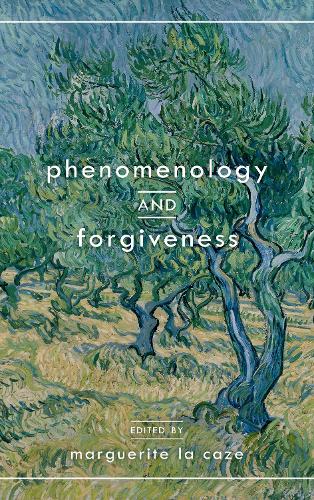
Phenomenology and Forgiveness
(Hardback)
Publishing Details
Phenomenology and Forgiveness
By (Author) Marguerite La Caze
Bloomsbury Publishing PLC
Rowman & Littlefield International
5th October 2018
United Kingdom
Classifications
Professional and Scholarly
Non Fiction
Ethics and moral philosophy
Social and political philosophy
205.699
Physical Properties
Hardback
248
Width 157mm, Height 232mm, Spine 22mm
581g
Description
Forgivenesseither needing or wanting to be forgiven, or trying to forgive anotheris a near-universal experience and one of endless fascination. This volume mines the work of phenomenologists and the methods of phenomenology to extend and deepen our understanding of these complex experiences. Interest in the phenomenon of forgiveness continues to grow, as the question of forgiveness for past injustices has become a global issue. Phenomenologists have a special contribution to make to the discussion of forgiveness, both because of the capacity to describe and analyse the richness of first-person experiences of forgiving and being forgiven, and because many of the twentieth-century phenomenologists, such as Arendt, Beauvoir, Fanon, Husserl, Levinas, Ricoeur, Sartre, and Stein, experienced first-hand the trials of war, detention, violence, exile and occupation that tested their power to forgive. Phenomenology and Forgiveness addresses questions such as whether it is only ethical to forgive in response to apologies and expressions of remorse or whether forgiveness is a gift, whether some acts are unforgiveable, the role of forgiveness in political life, and whether it is possible to forgive ourselves.
Reviews
The diverse essays comprising Phenomenology and Forgiveness together form a rich resource for anyone who wants to explore the intellectual and moral challenges encapsulated in the idea of forgiveness, whether they are committed to phenomenology or not. At the same time, as Ann V. Murphy argues in the book's final chapter, there is a kind of synergy between forgiveness and phenomenology. It is on this basis that one can also say that the book shows the potential phenomenology still harbors for remaking the world. -- Robert Bernasconi, Pennsylvania State University
At its best, philosophy enables us to understand basic dynamics of human existence in a new way. Such is the contribution of these essays, which show how problems of forgiveness are fundamentally embedded in interpersonal relations, in the possibilities and challenges for education, recognition, respect and solidarity. This timely volume engages with phenomenological reflections on the experience of harms and the possibility of forgiveness in concrete historical situations, including the extreme violence of the Holocaust, colonialism, and totalitarianism. In exploring the experiences, paradoxes, ethics and politics of forgiveness, these essays provide an excellent overview of phenomenological and existential philosophy, including recent discussions of critical phenomenology as a practice of liberation. -- Robin May Schott, Senior Researcher, Danish Institute for International Studies
Phenomenology is often falsely accused of detailed abstraction detached from critical social engagement. This book demonstrates the opposite, as its pages are ripe with seasoned insight that forces the steady hand of philosophical engagement back into the messy reality of the everyday. Yet it reaches as deep as it does wide into the well of phenomenological reflection, retrieving for its readers innumerable insights into some contemporary matrixes of opposition germane to the topic of forgiveness: exile and amnesty, alienation and solidarity, trauma and grace, impunity and punishment, shame and innocence, justice and permissiveness, truth and moral ambiguity. With careful engagements in the lives of especially 20th century thinkers steeped in times of atrocious wars, the book leads its readers to see that phenomenology's struggles with death and rebirth, and with the hope for new beginnings in the plasticity of consciousness, are in a certain sense also struggles with the courage, ambivalence, or rejection of forgiveness itself. -- Jason Alvis, Research Fellow, External Lecturer, Institute for Philosophy, University of Vienna
Author Bio
Marguerite La Caze is Associate Professor of Philosophy at the University of Queensland, Australia. Her publications include Wonder and Generosity: Their Role in Ethics and Politics, (2013) The Analytic Imaginary (2002), Integrity and the Fragile Self, with Damian Cox and Michael Levine (2003) and articles on a range of European philosophers.
